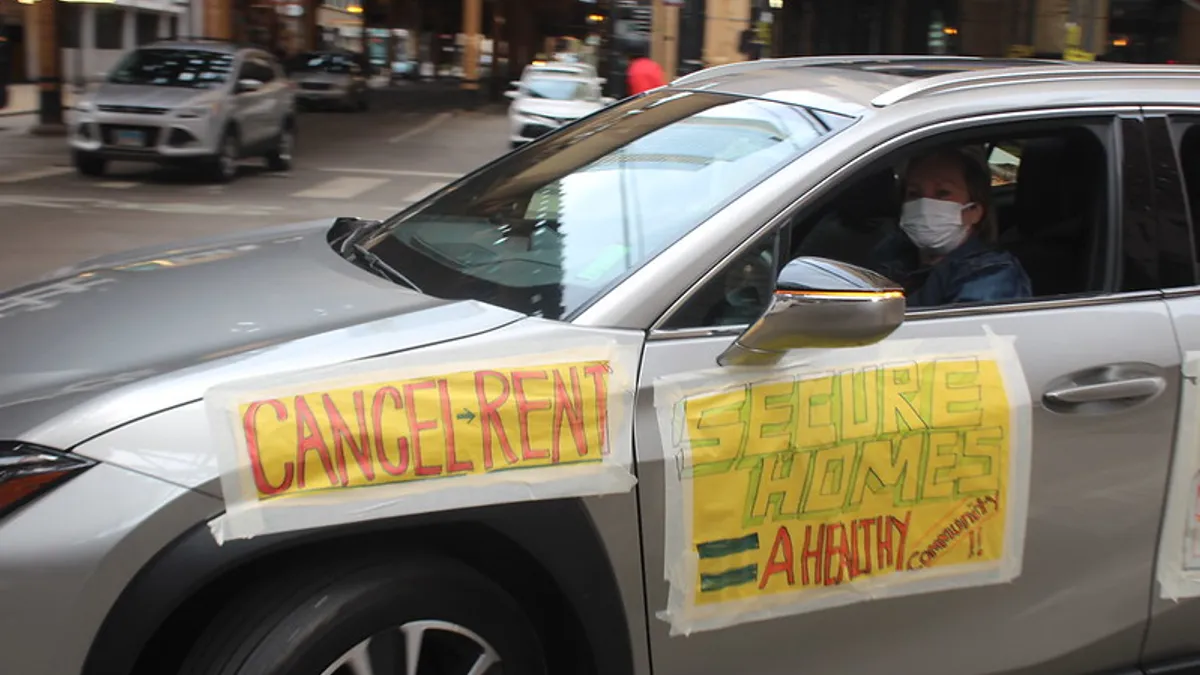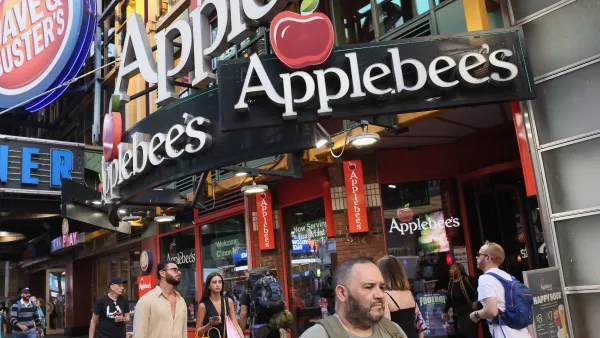Dive Brief:
- Apple is allocating over $400 million to homeowner assistance and affordable housing initiatives in California this year as part of its $2.5 billion pledge to address the state’s housing crisis.
- The company will fund its first affordable housing developments with Housing Trust Silicon Valley to create 250 affordable housing units in the Bay Area. The public-private partnership will also create a mortgage and down payment assistance fund.
- Apple, in partnership with the California Housing Finance Agency, is also launching a "first-of-its-kind" affordable housing investment in the state, increasing funding availability to build and develop new, very low-to moderate-income housing. The program is intended to be an essential tool for the state to create more affordable housing within the next five years.
Dive Insight:
Apple’s investment comes at a time when the state is reeling from the pandemic’s added strains to the existing affordable housing crisis.
Across the country, the coronavirus is anticipated to worsen the affordable housing crisis and levels of homelessness, with experts recently predicting the pandemic will result in 1.5 million more U.S. households becoming extremely low-income. Prior to the pandemic, there was already a deficit of 7 million homes for the lowest-income families, according to National Low Income Housing Coalition President and CEO Diane Yentel.
"As unemployment soars and enhanced unemployment benefits and eviction moratoria expire, we’re primed to see a tidal wave of evictions that will devastate communities," Principal of Bloomberg Associates’ Sustainability Practice Adam Freed told Smart Cities Dive in an email interview.
In California, residents have been particularly burdened by the affordable housing crisis. A 2019 report from the U.S. Department of Housing and Urban Development found the rate of homelessness in the state rose to 16.4% or 21,306 people, a larger increase than every other state combined.
"Homelessness is not an issue in California, it’s the issue," San Diego Mayor Kevin Faulconer said on a January panel at the 88th U.S. Conference of Mayors Winter Meeting.
The state's local leaders are working to soften the financial blow of the pandemic for vulnerable renters and people experiencing homelessness. San Jose Mayor Sam Liccardo and city council members recently unveiled a $17 million plan to build up to 500 modular and prefabricated homes, "taking advantage of recently-relaxed state environmental regulations to build emergency housing," the San Jose Mercury News reports.
Other city leaders have taken the helm at devising new, innovative solutions to the crisis at-hand.
Los Angeles and Seattle's Kings County, for example, are purchasing hotels to convert the buildings into temporary and permanent housing, Freed wrote. Meanwhile, San Antonio, TX and Philadelphia have grown or accelerated initiatives aimed at interceding legal proceedings to prevent evictions, according to Freed.
"As housing markets are hyper local, our national housing crisis is actually a series of local crises," he wrote. "It’s no surprise that cities are leading when it comes to developing and implementing innovative housing solutions."
Further relief could also come in the form of federal aid. The Emergency Housing Protection and Relief Act of 2020 recently passed in the U.S. House of Representatives, and includes $100 billion in emergency rental assistance; $11.5 billion to prevent and address COVID-19 outbreaks among young people experiencing homelessness; and a 12-month national extension on eviction moratoriums, according to a National Resources Defense Council blog post.
Other tech companies have made their own commitments to providing affordable housing relief. Google and Facebook each pledged $1 billion in land, grants and loans in California last year. And Microsoft recently invested an additional $250 million to its existing $500 million commitment made last year to the Seattle-area’s housing crisis.












